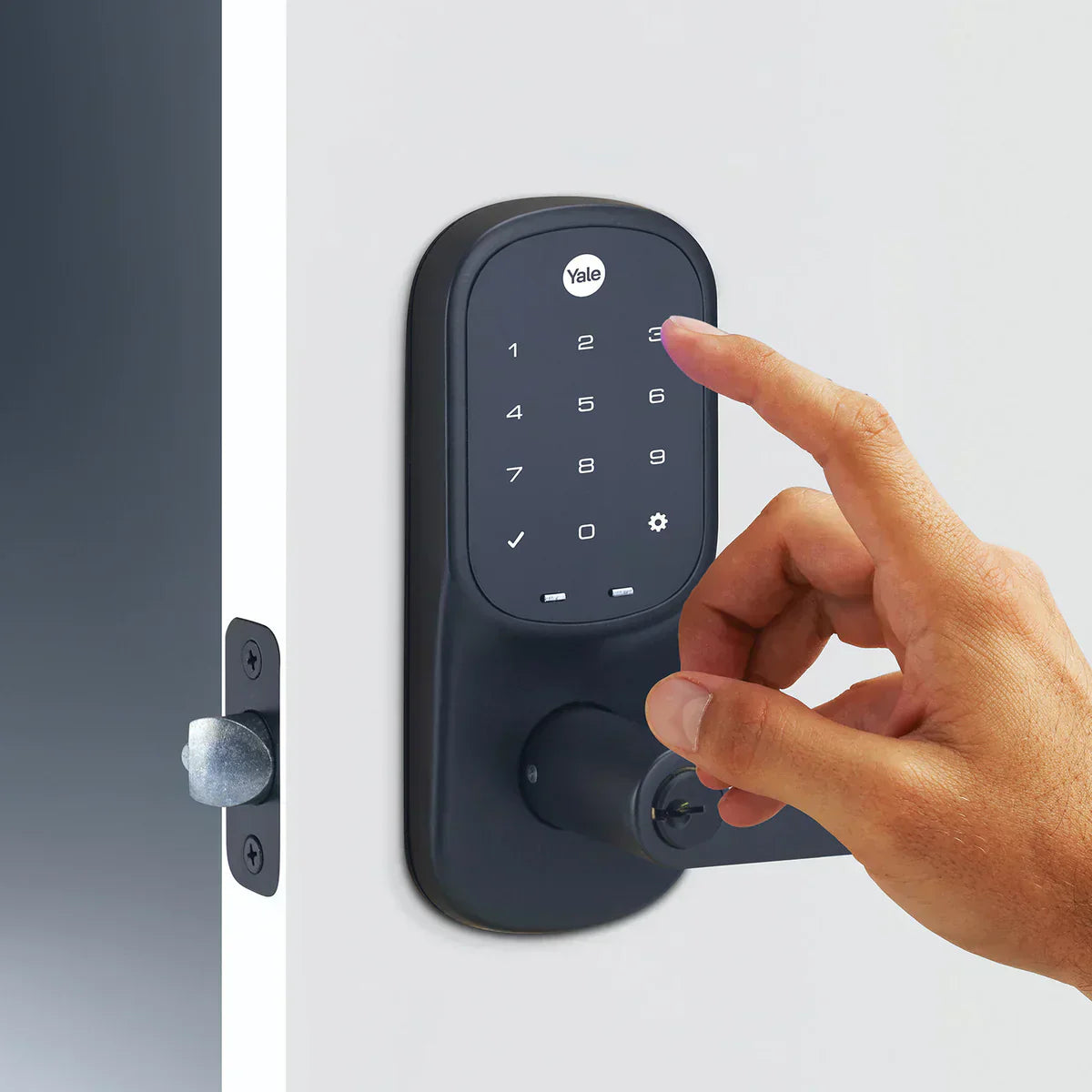When choosing a keyless entry system for your home or business, the terms ‘smart lock’ and ‘electronic lock’ are often used interchangeably.
However, they serve different purposes and come with varying levels of functionality. Understanding these differences can help you make an informed decision.
What Is an Electronic Lock?
An electronic lock is a keyless entry system that operates without traditional keys. It typically uses a PIN code, key fob, or card to grant access.
However, it does not connect to Wi-Fi or Bluetooth, meaning it lacks remote access capabilities. While electronic locks enhance security and convenience, they do not integrate with smart home systems.
Electronic locks are ideal for:
-
Businesses that need simple access control without internet dependency.
-
Homeowners who prefer a straightforward, secure system without additional connectivity.
-
Rental properties where access codes can be manually changed as needed.
What Is a Smart Lock?
A smart lock goes a step further by offering Bluetooth or Wi-Fi connectivity. If a lock has Bluetooth functionality, it allows access via an app on your phone. Wi-Fi-enabled smart locks provide even more control, letting you manage access from anywhere in the world.
Why Choose a Smart Lock?
A Wi-Fi-enabled smart lock allows you to:
-
Control Access Remotely – Generate and manage passcodes from anywhere, making it ideal for rental properties or Airbnb hosts.
-
Monitor Entries and Exits – See who has entered and exited your property, whether it’s family members, cleaners, or guests.
-
Integrate with Smart Home Systems – Connect with Google Home, Apple Home, and other smart home platforms to automate security.
-
Set Time-Sensitive Codes – Create temporary codes for visitors, ensuring security while offering convenience.
-
Receive Alerts in Real-Time – Get notifications if your door is left ajar or if an unauthorized attempt is made to access your property.
Security Considerations
Both smart locks and electronic locks enhance security, but each has its own risks. Electronic locks rely on passcodes or fobs, which can be lost or shared. Smart locks offer more flexibility, but their Wi-Fi connection means they should be secured with strong passwords and two-factor authentication to prevent hacking attempts.
Watch as our door handle expert Ben walks you through the differences between smart locks and electronic locks, helping you choose the right solution for your home or business.
Which One Should You Choose?
If you need a simple keyless entry system without remote management, an electronic lock is sufficient. However, if you want to control access from anywhere and integrate with your smart home, a smart lock is the better choice.
Before deciding, consider factors such as installation, power source (batteries vs. wired), and your overall security needs. A smart lock may be more suitable for those who travel frequently or want to integrate their door lock with an existing home automation system.
For more information on smart locks and electronic locks, contact Entry Point today.




 be
be
